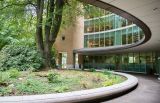Cambridge University Stages Unreal Cycling Incident and Got More Efficient Results for Empathy Survey
ByWhy Cambridge University faked a cycling incident? It is simple - to know the level of empathy in a certain area. This is an effective strategy to gather participants for the survey. Instead of chasing people to answer questions, they come to you willingly.
This is what happened in the community near Trumpington Road. An injured-looking cyclist looking desperate sits on the grassy area. Many went near to inquire ready to help. Instead, after a colleague notes counted them, they were asked to participate in the survey.
In exchange for 6 pounds, those who take part are requested to answer the Empathy Quotient (EQ) and Autism Spectrum Quotient (AQ from a website in their convenience, according to Cambridge News.
The Trumpington test scored high in terms of their level of empathy. 37 people ended up participating with 19 males and 18 females. Respondents belong to age the18 to 77, age group. They completed the online test like this empathy tool from Cambridge University by, Discover my Profile.
PhD. student Richard Bethlehem is the leader of the study. He commented that real world evaluations can generate more valid results. The test serves as the first initiative to understand why some people are hesitant to help.
The basis of the survey involves statistics taken from at least 1,000 people who happen to pass by. Although this is quite a minimum for all surveys, an increased number of people in a more populated area can also give different diversions.
The interesting revelation is, the study also determines the kind of people that would likely help a person in despair. It is evident that when a community has a high level of empathy, people there cannot just do nothing when needed by a stranger in need.
Social Neuroscience publishes this worthy experiment which is supported by the Autism Research Trust, the Pinsent-Darwin Trust ,Cambridge Trust and the Medical Research Council, in conjunction with the NIHR CLAHRC for Peterborough NHS Foundation and Cambridgeshire Trust.
© 2025 University Herald, All rights reserved. Do not reproduce without permission.








